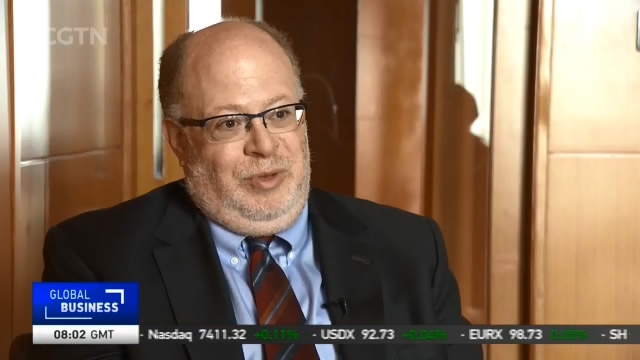
16:36, 15-May-2018
China-US Trade Tensions: China sends Vice Premier Liu He to negotiations
03:05

Chinese Vice Premier Liu He will be visiting the US from Tuesday to Saturday for a second round of trade talks. The first round was held in Beijing on May 3rd and 4th, resulting in few concrete agreements. Our reporter, Wang Hui, gets us a preview for this round.
Chinese Vice Premier Liu He will be visiting the US from Tuesday to Saturday for a second round of trade talks. The US side will be led by the Secretary of the Treasury, Steven Mnuchin. Experts shared their expectations for these negotiations.
ADAM POSEN, PRESIDENT PETERSON INSTITUTE OF INTERNATIONAL ECONOMICS "Liu He knows his brief very well, and he is the kind of senior person you want in the room. What would be reasonable is serious talks about intellectual property enforcement and tech transfer."
DONG YAN, DIRECTOR INTERNATIONAL TRADE OFFICE OF CHINESE ACADEMY OF SOCIAL SCIENCES "They'll need to avoid the implementation of the proposed tariff measures, and the potential threat to ZTE hopefully can be resolved. Also, China probably will bring up the expansion of its opening-up policies and increased imports to help with the trade imbalance."
The trade dispute was triggered in late March by a US 301 investigation that alleged the theft of American intellectual property and forced technology transfers on the part of China. The US soon announced a plan to impose tariffs on Chinese goods, worth about 50 billion US dollars. China then retaliated by imposing the same amount of tariffs. Trump later threatened to add tariffs on goods worth another 100 billion US dollars.
The two countries had their first round of negotiations in Beijing early this month. Beijing said the two sides addressed some key issues. Although they failed to sign any concrete agreements, they agreed to keep the lines of communication open.
Experts believe since each side has a long list of demands, the dispute will need time to be resolved.
CHAD BOWN, SENIOR FELLOW PETERSON INSTITUTE OF INTERNATIONAL ECONOMICS "This is going to involve long and reliable negotiations of the two governments. So having them together on a regular basis is an incredibly good news. My concern is that one side or the other, perhaps the American side gets frustrated, thinks this is going to happen very quickly and decide to shut down the negotiation. If we see that's happening that will be a very bad sign. Wang Hui, CGTN, Beijing."

SITEMAP
Copyright © 2018 CGTN. Beijing ICP prepared NO.16065310-3
Copyright © 2018 CGTN. Beijing ICP prepared NO.16065310-3